From being a World Vision-sponsored child, living in poverty to gaining a theology certificate at Oxford University, Racheal Mutesi speaks with Jemimah Wright about her passion to be a voice for the horrendously abused women in her community
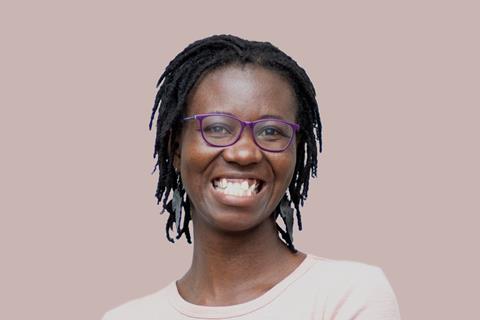
*This article contains content of a sensitive nature that some might find disturbing.*
Could you tell us a bit about your upbringing?
I was born in Jinja, which is in the eastern part of Uganda. My parents separated five months after I was born. My father came from a very wealthy family and my mum was from a very poor family. When they separated, my mum moved with me and my older sister to a Kalerwe slum.
Can you describe the slum?
It was an informal settlement and highly populated. An average house in the slum would be one rented room, with an average of eight to 15 people staying in there. People didn’t have toilets and Kalerwe was on an encroached swamp, so the drainage was exceedingly bad; sewage used to run through the houses. By the time I turned 20, half of my school friends had died – many of them from diarrhoea, dysentery or malaria.
We lived in the school storeroom surrounded by stacked chairs, and at night we were woken by rats eating at our feet. For me it was normal, but I look back and realise this was poverty; it’s purely God’s grace that we survived.
You said you came to faith when someone gave you a bowl of rice. What happened?
When I was nine, the diocese organised something called Celebrate Jesus, bringing together thousands of kids. They shared the gospel and offered us each a bowl of rice. I gave my life to the Lord at this event.
‘Justice in our world doesn’t exist. But we will see the justice of God’
How did God reveal himself to you then?
I was a very sickly child, so nobody thought I was going to survive. When I finished at the World Vision-sponsored primary school top of my class, my father, who was always distant, said: “You surprised me because I thought you would die.”
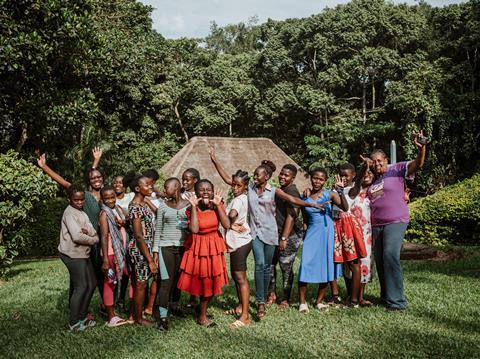
I believe I lived because God gave me hope I would survive when I was nine. I started reading Scripture and fell in love with that. It gave me hope that, even when my circumstances on earth were not changing, I was going to heaven one day.
How did you get from a slum school to completing a degree in commerce at Makerere University?
I was raised by my mum, but my uncle David was very significant. Like my mum, he was also a teacher and worked in the best schools across the country. When he moved to a new school, he would tell them about me and my older sister, saying: “These are my daughters; they are brilliant. If you give them a scholarship they’re going to work.” And then God just kept on opening doors.
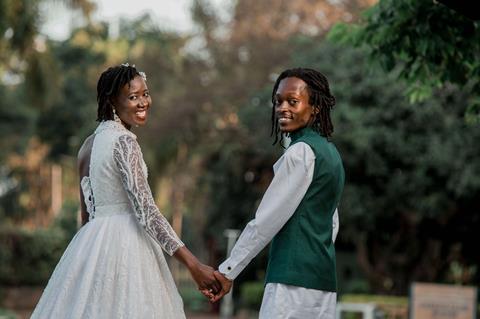
I started working in schools to raise money for university. Because I was so small, people took advantage and never paid me. I then got a job as a school matron at a boarding school. They realised I was good at teaching because I would help the kids with homework, so they asked me to teach mathematics. I was working for about $25 (US dollars) a month. At the end of the month, a person in the school invited me to his office, locked the door and said: “Every woman who has worked in this space has slept with me, so you must too. We know you’re a good teacher – we’ll pay you 150,000 shillings a month if you do this.”
Now my mum’s best salary was 120,000, so that was a very big deal. I was 18 at this time and, as I was trying to get him off me, somehow I believed that God would save me. A girl who had seen us walk into the office started knocking on the door shouting: “Master, get out, I want to talk to you, we have a problem!” She just kept on knocking and the guy started to panic. I opened the door and got out.
By the time I turned 20, half of my school friends had died – many of them from diarrhoea, dysentery or malaria
I packed my bags and went to stay with another uncle. He and his wife were the most entrepreneurial people that I knew. They taught me how to crochet, knit and make samosas to sell. When the academic year started, I went back home and said to my mum: “We’re going to start a business.” My mum got a loan, and then would wake up at 3am and start making samosas. I sold them at 8am and then went to school at 9am. That’s how God helped me to finance my education.
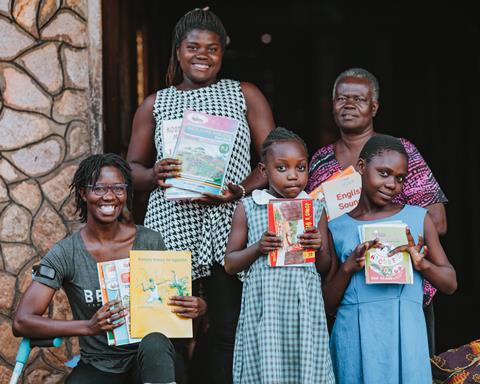
How did you get from Makerere to Oxford?
I was studying but also worked with an evangelistic organisation in schools. I met a vicar from Norfolk in the UK. He had brought a team to serve and a man called Andy Cox came with his daughter, Francesca. We became friends and they arranged for me to go to the UK in 2013 after I finished my degree, to do a year with Youth for Christ. Four vehicles from my local church escorted me to the airport as it was unheard of for someone like me to go to the UK. I tasted cheese for the first time on the plane. The food was something I had to get used to! I had never seen escalators, so I got stuck at the airport; it was a miracle I got my flight. I went with 50p in my pocket – that is all I had.
When I was in the UK I went to a Christian conference in Derby. Amy Orr Ewing’s dad, Hartmut Kopsch, was one of the speakers. He invited me to stay with him and his wife Jane. While I was there, we went to hear Amy speak on the theme, ‘What does the Lord require of you?’ I don’t think I’ve ever heard a female preacher speak with such authority and clarity; it was amazing. Her parents encouraged me to apply to study Christian apologetics at The OCCA (The Oxford Centre for Christian Apologetics), and I ended up getting the scholarship to do a year-long course.
I struggled with secondary trauma; I think in Christian communities, especially in Africa, people think that shows lack of faith, so it was very hard
Tell us about Ufahari Girls Ministry.
In 2015, when I went back to Uganda, an eleven-year-old Muslim girl started asking me questions, including: “What do you do when you hate your father?” and “How do you kill him?”
I learned that her father was sexually abusing her. I remember telling a female pastor about the girl and she said: “Racheal, in the slum even three-year-olds are being abused.”
That really broke my heart and changed my focus from everything else I was doing into focusing on rescuing and helping children who are sexually abused. I had started Ufahari in 2012, which was originally called ‘Kingdom Daughters’. In the early stages of the ministry, we were dealing with menstrual hygiene, and helping girls with questions of identity. After hearing about the abuse, I realised what we needed to do was to get that young girl out of the area, into a boarding school. That’s what we’ve continued to do over the years; identifying those children in need, some of them pregnant, and helping them survive whatever they’re dealing with.
Ufahari (Swahili for ‘valuable’) is now a registered charity, and we have supported many girls over the years.
Have you come under attack because of the work you are doing?
Several times. I have been sexually assaulted on public transport. I don’t have a lot of people in my house apart from very specific people, because I have had threats of being poisoned. Sometimes the things I hear or the things my husband has to endure are unimaginable.
I have written a collection of poems, and one of them is called, ‘Can I look at you the same now?’ I tell a story of a pastor who abused a child, but it was interpreted by many clergy here that I was trying to downplay the testimony of the church, and discredit it. Because I have connections in the West, they were saying I’m probably receiving money to discredit the witness of ministers in Uganda. So it is both physical and emotional persecution, but I cannot stop speaking out.
How did you meet your husband, Calvin?
We met at fashion school. I enrolled to upskill myself to make clothes, so I could teach girls in our ministry. Calvin is a commercial photographer, and he was taking pictures for the school.
During COVID I was dealing with PTSD. I’d been in hospital with a girl who terminated her pregnancy, and she became extremely suicidal. Her family could not support her so I stayed with her for 72 hours. I didn’t sleep. It was very traumatic. I then went home to one young girl we were supporting who had lost a baby, and I was called to do a funeral because somehow the family isolated her, and I became the pastor of the funeral. And then I learned of a story of a girl who had been raped, and the brutality that came with it. I struggled with secondary trauma; I think in Christian communities, especially in Africa, people think that shows lack of faith, so it was very hard.
Calvin was there for me through it all, and we married in August 2022. We have become foster carers, and at the moment are supporting 25 girls. Twelve are in primary school, and nine of them don’t have a home to return to, so we have full custody of them and they stay with us. We still live in the slum.
What can an eight-year-old do to seduce a man – or a toddler in diapers?!
What is your vision for the future?
I want to use the next phase of my life to amplify the voices of abused women and girls in Uganda. To sit with them in the pain as Jesus does, and not shun or shame them, saying things like: “Oh, she must have seduced him.” What can an eight-year-old do to seduce a man – or a toddler in diapers?! I really genuinely believe that God is a God of justice.
Last year on Mother’s Day, my great aunt was killed for her land. The killers had warned her, so she walked 18 miles to the police, but they did nothing. She went home, and that night they attacked her. They killed her by cutting off her breasts, they broke her jaw, they literally humiliated her in the worst way possible. And then they took her to the door and placed a log between her legs.
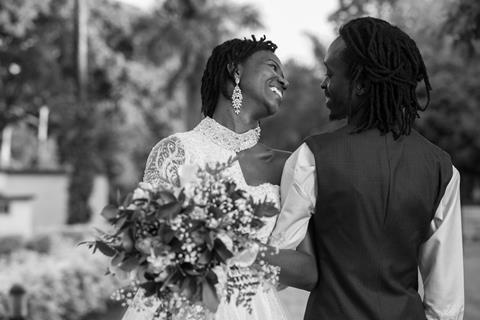
I didn’t attend the funeral; I couldn’t bring myself to. My husband and I went to a nearby lake where it had rained and there was still thunder in the sky. Just looking at the stormy water, I felt Jesus say to me: “I will still your heart like I calm the sea.”
I want to be able to tell the stories of Jesus who calms the stormy sea for those who will never get justice. I work with victims of abuse and I know justice in our world doesn’t exist. But we will see the justice of God. He will come through and reign strong. I think everyone deserves to hear that blessing.
Follow Racheal on @rachealme2020

































No comments yet